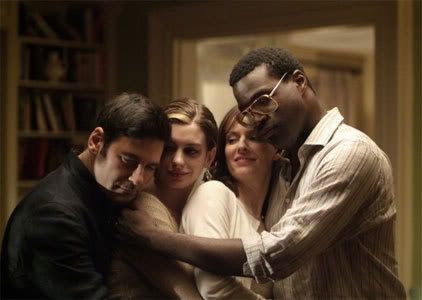"Happy-Go-Lucky" review

Conventional movie wisdom states that when a lonely man – regardless of how loathsome, unkempt, or generally unattractive they might be – meets an attractive woman, the two will fall in love by the end of the movie. This logic has appeared in movies like Beauty and the Beast, Edward Scissorhands, plus most of the movies that star Woody Allen and Seth Rogen.
All of this brings us to the British dramedy Happy Go Lucky. Written and directed by Mike Leigh, the movie follows Poppy, played by actress Sally Hawkins, a lovely, effervescent, and seemingly care-free grade school teacher whose only regret when she discovers that someone stole her bicycle is that she didn’t get a chance to bid her bike farewell.
Poppy spends her days hanging with her rowdy party-girl friends while looking for love in what seems to be a world filled with ugly and hateful men. One of these hateful men is Poppy’s driving instructor, a fellow by the name of Scott. Scott seethes with rage, his upper row of teeth is beyond rotten, and even worse than that, he’s something of a white supremacist.
As with the rest of the characters in the film, Poppy is constantly joking with Scott, and even flirts with him, though slightly. And while he has no reasonable way of expressing it, Scott starts to grow feelings for Poppy. Poppy on the other hand, sees Scott as an example of why she should take her job working with children seriously at times, especially when one of her male students begins to lash out with rage. By caring for this student, Poppy meets a social worker named Tim, played by Samuel Rokin.
For the most part, Tim is everything that Scott is not: friendly, caring, conventionally handsome – plus he’s one of the very few British people I know whose teeth will allow him to smile without irony.
There’s no reason why Poppy should love the wretched Scott over the handsome Tim, and fortunately the movie is smart enough to realize this. While the movie certainly feels for Scott, who is caught in the cycle of responding to the unkindness of women by being unkind to them – thus sparking even more unkindness from women – it is simply not Poppy’s responsibility to fix such an unlikable person.

















